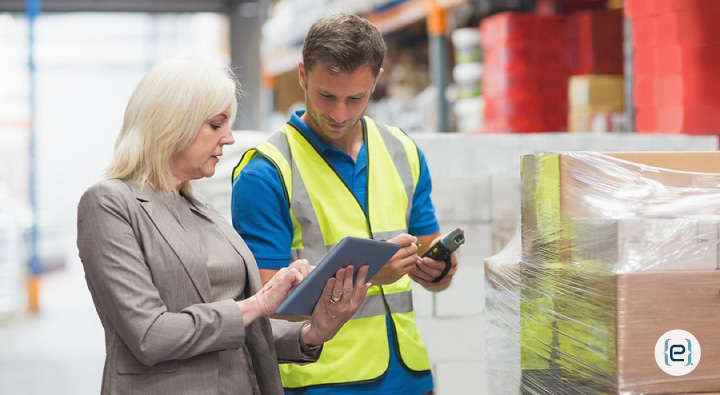5 Advantages of Using a POS System in a Retail Environment


The first computerized point-of-sale (POS) system arrived on the scene in 1973, and by the 1990s POS systems became common in shops and restaurants. But the systems have evolved substantially in the last 30 years, making POS a business necessity. Now the advantages of using a POS system in a retail environment extend far beyond the sales transaction.
At the simplest level, the POS system functions as an intelligent cash register. But it does much more than accept payment methods. This comprehensive solution can manage sales and inventory, provide detailed reporting, and drive the customer experience. It also plays an essential role in retail cyber security.
Streamlined Checkout
The most basic function of a POS system involves completing sales transactions. This can occur at a traditional checkout station or a self-checkout line. Mobile and tablet systems have become increasingly popular in recent years, adding further efficiency and making the technology more accessible for small businesses.
Using a POS system makes transactions both quicker and more accurate. For instance, barcode scanning and automatic price calculations reduce the likelihood of human error and ensure customers are charged the correct amount. The system will automatically apply discounts, calculate tax, and process a variety of payment types.


Improved Inventory Management Ranks High Among the Key Advantages of Using a POS System in a Retail Environment
One of the most significant advantages posed by POS systems lies in their inventory management capabilities. Real-time inventory tracking helps prevent both stockouts and overstocking by automatically updating inventory counts with every sale.
The system will deliver alerts when inventory runs low. Further, it can help to automate reordering. For instance, if you set reorder levels in the system, it will automatically generate and send a purchase order when stock levels reached the specified point. This allows you to maintain ideal inventory levels without constantly counting product.
Analytics for Data-driven Decision Making
POS systems offer robust reporting features, providing valuable insights into product performance, sales trends, peak shopping hours, customer habits, and more. This data proves essential in driving decision making around products, pricing, and promotions.
For example, by analyzing sales data, retailers can implement dynamic pricing strategies like offering discounts on slow selling items to clear stock. Data analytics can also inform decisions about store layouts, opening hours, and staffing requirements.
Improved Customer Experience
The speed and efficiency gains alone will result in happier customers. Customers hate long lines at the register, sometimes opting to leave their intended purchases behind rather than wait. POS technology enables self-checkout and mobile payments, significantly reducing checkout lines.
Additionally, because the systems accept multiple payment options at a single terminal, customers can easily pay using their payment type of choice. And if they need to return or exchange items, the POS system makes that a breeze, as well.
Finally, because the POS system can store customer information and purchase history, retailers gain the information they need to inform targeted marking campaigns and personalized shopping experiences.
Strengthened Security
Modern POS systems prioritize security with features like secure payment processing and user access controls. This safeguards your business from fraud and data breaches, providing peace of mind and facilitating compliance with regulations such as PCI DSS. In addition, cloud-based POS systems protect against data loss by enabling automated data backups.
Protect POS Investment with Retail IT Services from eMazzanti
Keep in mind, however, that POS transactions still pose an attractive target for cyber criminals, and a successful data breach will have far-reaching consequences. Work with a reputable vendor to ensure the proper configuration and security of your POS system.
eMazzanti Technologies offers comprehensive and cost-effective retail technology solutions, including cyber security. Call us today to explore options from fully implementing, integrating, and monitoring your POS system to ensuring PCI compliance and network management.
Recent Posts
Enhancing Your Professional Tone with Emojis in Business Digital Communication
Discover how emojis can enhance your business communication, adding personality and emotion to digital interactions.
Data Breaches Brand Reputation: How Security Slip-ups Can Shatter Consumer Trust
Discover how data breaches impact brand reputation and learn strategies to rebuild trust and strengthen…
Future Communication Technologies: Bridging Worlds with Quantum Leaps and Virtual Handshakes
Explore the future of communication with advancements in AI, 5G, and quantum technologies, reshaping global…
Future Cyber Security Legislation: What to Expect in 2025 and Beyond
Discover the upcoming trends in cyber security legislation, focusing on AI, IoT, and cross-border data…
Cyber Security Customer Data: Shielding Your Digital Gold Mine from Hackers
Protect your business from rising cyber threats with strong cybersecurity practices to safeguard customer data…
Big Data Marketing Strategies: Unlocking Customer Insights for Personalized Campaigns
Discover how big data marketing strategies can unlock customer insights and enhance personalized campaigns for…


